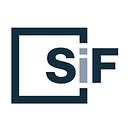Transitioning to Hybrid Work? Check Out These Collaboration Tools
Hybrid work — where employees work in the office, from home, or both — is fast becoming the new normal. Google, Ford, Microsoft, Salesforce, and Reddit have all announced that they’re going hybrid; other major companies will likely follow suit. But creating an effective hybrid environment isn’t as easy as re-opening offices and turning everything into a Zoom meeting for the people who aren’t in the room. Companies face big questions about how they plan to build equitable and diverse work environments for remote and in-person employees, eliminate proximity bias in hiring and management, and right-size office space for a new way of working. And then there’s the matter of actually getting things done.
The nature of collaboration changes when some employees are in the office and others are remote. How should cross functional teams work together? What’s the best way to manage direct reports who don’t work in the building? What tools can help us work asynchronously and get the most out of meetings when we all have Zoom fatigue? The answer: collaboration technology.
A growing market of enterprise collaboration solutions offers tools for everything from brainstorming sessions to board meetings. Gartner forecasts that the worldwide social software and collaboration market will grow 17% and reach $4.5B this year. Investors, cognizant of the pandemic’s impact on the way we work, have helped new industry entrants raise sizable funding rounds.
Is your organization shifting to hybrid work? Here’s how best-in-breed collaboration tools can help you connect with your colleagues and keep projects on track.
- Facilitate cross-functional collaboration. Time zone disparities and scheduling conflicts can make it challenging to bring cross-functional teams together in a hybrid environment. Tools that enable asynchronous work can help. Try Loom to record and share screen, voice, and face communications with colleagues, or Conceptboard to track projects in a shared visual environment.
- Optimize meetings. Remember the flurry of syncs, check-ins, and meetings-by-any-other-name that clogged everyone’s calendars when we all started working from home? Turns out we don’t need all those meetings to work effectively. Aim for fewer, better meetings, and make your time with your colleagues count. Try Hugo to optimize meeting workflows and centralize knowledge, or use Undock for scheduling, conferencing, and document management.
- Hold better one-on-ones and track goals and outcomes. One-on-one meetings between managers and employees are most effective when there’s a way for both parties to structure the conversation and foster accountability. Use Fellow to provide feedback and manage recognition and goals. Try Notion to create a recurring shared agenda, or use Notiv to transcribe meetings, identify action items, and summarize key points.
- Host a virtual board meeting. Virtual governance meetings are efficient: meetings don’t last all day, board members are more likely to attend, and there aren’t significant travel costs. But in order to be effective, virtual governance meetings must be secure, engaging, and make it easy to vote. Try BoardBookit, Diligent Boards, or OnBoard to manage board meetings, enable digital voting, and share documents.
- Stay connected to colleagues. While videoconferencing technology made remote work possible during the pandemic, it didn’t replicate the spontaneous social interactions — coffee dates, hallway chats, lunch breaks — that are vital to building community at work. To foster meaningful connections with colleagues, try Knock, which allows teammates to work silently together in open space. Slack tools WaterCooler and Donut can also encourage conversation. Be sure to keep things fun — schedule non-work time to for games or virtual experiences with tools like Crowdparty, Bonfire, and Seshie.io.
Work as we know it is changing — and companies must decide what they want their workplaces to look like.
If your organization needs assistance creating an effective hybrid work environment, email us at info@sifoundry.com.
